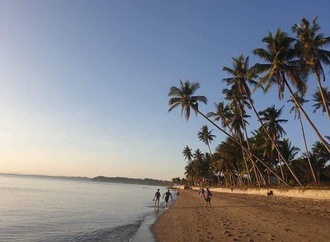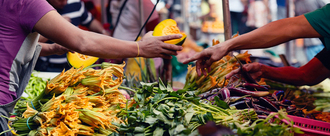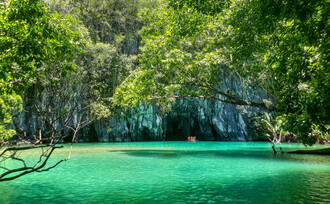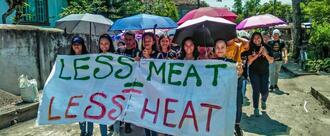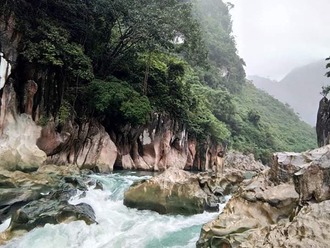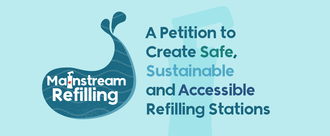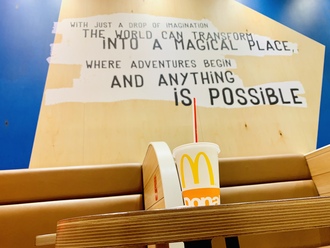-
Save Bagasbas Beach and Camarines Norte Shoreline! No to Offshore Mining!On July-August 2019, a Notice for Application of Exploration, from EPHESUS MINERALS CORPORATION was received by different towns in Camarines Norte (Paracale, Vinzons, Talisay, Daet). While the Provincial and Local Government Units involved have expressed their strong opposition to this project in writing, I feel it is important to put into a law, resolution, or mandate that will ensure that the said project will not take place now or in the future. 1. Environmental Exploitation in the form of exploration and Blacksand sand mining will affect our 15 hectare marine reserve where fish sanctuary is located. 2. It will destroy the reef that produce waves to our surfers making Bagasbas Beach a premier Surfing Destination not only in the Philippines but in the world. 3. It will destroy the reed that serves as barrier to prevent the higher ground from falling into the deep of the intercontinental shelf. 3. When it happens, coastal erosion will be evident in the coastline, intrusion of saline water into farmland takes place hence farmers will be affected. 4. The most dramatic event that will happen is that due to coastal erosion, 5 thousand plus population of Brgy Bagasbas is at risk, 3 thousand plus population of Sitio Mandulungan is at risk, 252 registered fisherfolks will lost their livelihood, Quinamanokan Island will be no longer in the map. 5. 104k Plus population in Daet that depends on fishing and its products will be indirectly affected.1,266 of 2,000 SignaturesCreated by Eleanor Sherlyn
-
No To Sea Wall Widening in San Teodoro, Oriental MindoroOur nature is important and it is our duty to protect our nature including our endagered species. While infrastructures can be a sign of development, these should be planned and designed carefully to avoid harming our beloved Mother Earth.48 of 100 SignaturesCreated by Maica Angelle Feraren
-
Make Cebu Adopt a Healthier and Climate-Friendly Food SystemHEALTH & NUTRITION: Our country is confronted with a double burden case of malnutrition: children are underweight, while adults are obese or overweight. This is associated with the increasing intake of fats, oils, sugars, syrups, and processed food; and decline in consumption of fruits and vegetables. ( https://www.rappler.com/move-ph/issues/hunger/84126-double-burden-malnutrition-obesity-urbanization ) LIVELIHOOD & CLIMATE EMERGENCY: On top of that our country is also regularly plagued with intense storms and drought that affects our farmers and disrupts our food system. Did you know that livestock contributes as much to climate change as all cars, trucks, planes, trains, and ships in the world combined? That's 14% of all greenhouse gases! ( https://business.inquirer.net/262567/neda-ph-agriculture-losses-growing-due-to-climate-change | https://www.sunstar.com.ph/article/426910)29 of 100 SignaturesCreated by Judy-Ann Nulla
-
OPPOSE COAL FIRED POWER PLANT IN PALAWAN (and the rest of the country)Palawan is an island that has prided itself in being the "World's Best Island", home of the UNESCO heritage sites: Tubbataha Reefs and the Puerto Princesa Subterranean National Park, not to mention its other local human and wildlife inhabitants that have benefited from the clean air, water and land from it being coal-free. Back in 2014, former president Aquino said that Palawan needs adequate energy to cater to the 10 million tourists projected for 2016. “A lot of these tourists will be going to Palawan. I am sure you are aware of all the developments that are happening here plus iyong airport, i-u-upgrade din natin. And all of that plus the upstream and downstream industries will need power. And if it’s not available, then practically we are saying, parang wala na rin iyong tourism na big industry dito or iyong growth, or projected growth." (see https://newsinfo.inquirer.net/606179/aquino-not-keen-on-coal-free-palawan) But growth at what expense? Would locals not prefer a future of clean air, clean water, clean land and thriving wildlife over throngs of tourists promising "growth and development"? And what then would tourists actually keep coming for if the island's health is compromised with an unsustainable coal plant and other unsustainable infrastructure built with a short-sighted goal in mind? But civil society movements and some LGUs have shown that we can resist this from happening. They realize that there's so much at stake, and so much we need to protect. (see https://businessmirror.com.ph/2018/08/05/lgus-going-green-rejecting-coal-projects/) Atty. Grizelda Mayo-Anda, who is one of the lead convenors of the civil society group Save Palawan Movement (SPM) said: “Kapag natayo ‘yan, magsisisihan na tayo sa impact. Ang hirap na nyan matanggal once that is set up. The basis that it is of national significance, with all due respect, is not sound because all they have to do is to look at the Palawan Island Power Development Plan (PIPDP). Coal is not a least cost option. Ang least cost option doon ay combination of mini hydro with diesel and bunker. We have enough power supply”. (see https://palawan-news.com/denr-gives-go-ahead-to-palawan-coal-plant/) Furthermore, the civil society group in Palawan, among others who oppose the building of new coal plants, has claimed that, apart from negating any advances we make in addressing climate change, coal power projects are dangerous to human health as it releases a number of airborne toxins and pollutants, among them mercury, lead, sulfur dioxide, nitrogen oxide, and other particulates.1,556 of 2,000 SignaturesCreated by Living Laudato Si Philippines

-
Save Island Cove / Animal IslandFor local fisherman. Climate change111 of 200 SignaturesCreated by Jillian Uy
-
Make Iriga City adopt a Healthier Food SystemHEALTH & NUTRITION: Our country is confronted with a double burden case of malnutrition: children are underweight, while adults are obese or overweight. This is associated with the increasing intake of fats, oils, sugars, syrups, and processed food; and decline in consumption of fruits and vegetables. ( https://www.rappler.com/move-ph/issues/hunger/84126-double-burden-malnutrition-obesity-urbanization ) LIVELIHOOD & CLIMATE EMERGENCY: On top of that our country is also regularly plagued with intense storms and drought that affects our farmers and disrupts our food system. Did you know that livestock contributes as much to climate change as all cars, trucks, planes, trains, and ships in the world combined? That's 14.5% of all greenhouse gases! ( https://www.greenpeace.org/philippines/press/3472/worlds-scientists-call-on-city-mayors-to-reduce-meat-in-canteens/ ) Suportaran ta, maray na salud asin karayan ta! SIGN THE PETITION. -- Image credits: Jericko Magistrado142 of 200 SignaturesCreated by Jason Salvadora
-
Save Daraitan and Tinipak River!1. The Kaliwa Watershed Forest Reserve (KWFR) is home to the indigenous Dumagat-Remontado communities, who have been stewards of their ancestral domain within the Sierra Madre since time immemorial. The Tinipak River spring is a sacred site in Barangay Daraitan, within the Dumagat-Remontado ancestral domain and declared an indigenous community conserved area. Building the 60-meter Kaliwa Dam poses the threat of inundation of portions of Barangay Daraitan and Tinipak River, as well as Infanta in Quezon. 2. Daraitan and Tinipak River provides important economic activities to local communities, from tourism, to non-timber forest products for livelihood. 3. Daraitan and Tinipak River is an ecologically important water system that enhances climate resilience. It provides key ecosystem services to downstream areas, playing an integral role in regulating water flow to the National Capital Region. Forests act as natural water filters. Globally, forested watersheds supply 75% of the world’s accessible freshwater needs. (FAO, 2016) 4. Daraitan and Tinipak River are within the Kaliwa Watershed, home to rich biodiversity and threatened wildlife, including the critically endangered Philippine Eagle. Other important species include the Endangered Northern Philippine Hawk-eagle, the Philippine Brown Deer, the Philippine Warty Pig, the Vulnerable Northern Rufous Hornbill, the Critically Endangered Philippine Eagle, and restricted-range birds of the Luzon Endemic Bird Area. The KWFR was declared a reserve by virtue of Presidential Proclamation (PP) 573 dated June 26, 1969. In April 18, 1977, PP 1636 was also issued declaring Kaliwa Watershed as a National Park and Wildlife Sanctuary. Disrupting natural ecosystems and local livelihoods by building the Kaliwa - NCWSP Dam is not the solution to water security nor sustainable development. Forests have a crucial role in building and strengthening resilience. There is a need to explore other viable alternatives. The most urgent is to protect the critical Kaliwa Watershed Forest Reserve within the Sierra Madre. Save Daraitan and Tinipak River, and the lives and species that depend on these for survival.2,231 of 3,000 SignaturesCreated by Ella Manera
-
Stop Easter Wish BALLOON Release of 'Christ, King of the Universe' Parish!GOD made us, humans, to take care of all HE has created. With this kind of event, are we taking care of our only home? Genesis 2:15 NIV The Lord God took the man and put him in the Garden of Eden to work it and take care of it. During a mass last Palm Sunday, 'Christ, King of the Universe Parish' (https://web.facebook.com/CKUParish/ ) announced that they will conduct a balloon release with wishes this Easter Sunday. All of these balloons, once released, will end up as waste in landfills and other areas which will harm wildlife, marine and terrestrial ecosystems and even clog sewage systems, among others.179 of 200 SignaturesCreated by Megumi Kawaguchi
-
PH Need to Call for UN Climate ActionPhilippines is suffering from the climate crisis. The youth seeks for the support of the Department of Foreign Affairs to let their story be heard in the International Court of Justice. Such an opinion will assist Philippines, and other countries, in understanding their legal duties regarding climate change impacts. Last year the Inter-governmental Panel on Climate Change released a special report (http://bit.ly/reportIPCC) stating that global change needs to happen before 2030 if the planet is going to reverse the impacts of climate change. We are hatching a global legal adventure. The 'I am Climate Justice Movement', sparked by the youth of the world wishes for us to be the change that we want to see. First, please make a Pledge (http://bit.ly/ICJMypledge) to take simple steps for personal change. When we have changed inside, we will ask for change outside. We are asking governments around the world, including the Philippines, to support a UN Resolution at the UN General Assembly in September this year triggering an International Court of Justice Advisory Opinion on the duty of States in light of the climate crisis. Such an opinion will assist Philippines, and other countries, in understanding their legal duties regarding climate change impacts. Our first step will be sending a letter (http://bit.ly/DFAletter) to the Department of Foreign Affairs on April 22 asking for their support. On June 5, World Environment Day, we will refile the letter, attached with the signature of the youth from other countries. We will continue to gather support until the UN General Assembly in September! Please join us in our legal fun and support this petition!1,422 of 2,000 SignaturesCreated by iam climatejustice

-
Mainstream RefillingA five-year waste audit by the Global Alliance for Incinerator Alternatives (GAIA) estimates the Philippines throws away 163 million sachets everyday. 79% of “branded” plastic waste comes from food packaging, 12% from household and 8% from personal care products. Plastics can remain for 2,000 years or longer in our natural environment. If we continue business as usual, by 2050 there could be more plastic than fish in the sea by weight. Because it is produced from petroleum-based chemicals, it could account for one-fifth of the world’s total oil consumption, further accelerating global warming and deadly climate change. Government policy can be a decisive driving force for widespread transformation. The FDA Philippines safeguards public health by ensuring the safety and efficacy of food, medicine, household and cosmetics products. With the support of key government agencies such as the Environmental Management Bureau and the Department of Trade and Industry, the FDA is in a unique and powerful position to influence and transform the usage of plastic at the source through the thousands of brands it regulates. We envision that the presence of safe, appropriately regulated cosmetics and home care refilling stations that are as accessible as water refilling stations will spark a radical change in the way people and organizations consume goods and manage plastic waste. An Illinois case study showed that a single mobile water refilling station saved the equivalent of 99,000 12-ounce plastic bottles a year. In order for this transformation to take place, we raise the following three opportunities to enhance the implementing rules and regulations of Republic Act No. 9711 - The Food and Drug Administration Act of 2009: FIRST: Instead of classifying refilling activities under “filling”, a manufacturing activity under AO 2016-0003 (Guidelines on the Unified Licensing Requirements and Procedures of the FDA) and Good Manufacturing Practices, we propose that a new, separate classification be developed such as “Refilling/Repacking Stations” within a retail outlet similar to how RONPD (Retail Outlets for Non-Prescription Drugs) were developed. SECOND: To fulfill the FDA requirement of protecting consumers’ health, we propose these Refilling/Repacking Station requirements: 1. Business permit 2. Sanitary permit 3. Products (cosmetics and household) for refilling must be FDA-notified 4. Authorized refilling representative trained and certified by the company to conduct safe and sanitary refilling (patterned after food establishments’ safety compliance officer) and not necessarily a pharmacist or a graduate of an allied science profession. 5. Refilling procedures to ensure the safety of refilling 6. Flat rate fee for the refilling License to Operate similar to government agencies such as Bureau of Animal Industry (BAI) and Philippine Drug Enforcement Agency (PDEA), and not based on business capital. THIRD: If the packaging to be used is the emptied product bottle, the minimum mandatory information is already in the label. The Batch No. and Expiration Date will be stamped on the label for every refill. If the packaging to be refilled will be different from the emptied product bottle, the existing minimum mandatory requirement should be displayed on the Refilling/Repacking Stations for the consumers’ information. We propose that the following be stamped/stickered on the label for every refill: 1. Product Name 2. Batch No. 3. Expiration Date 4. Special precautions to be observed (if applicable) With this proposal, we seek to bridge the policy gaps and promote a sea change in the way responsible Filipino companies and ordinary citizens use plastics - not just temporary measures, but permanent and lasting policies, structures and systems. We hope to prepare the way for more brands to become better stewards of our earth and of human health. Join our push for safe, sustainable, widely accessible refilling stations of daily household and cosmetics products! Read the full text of the petition at bit.ly/mainstreamrefilling-pdf Signed: Anna Oposa, Co-founder & Executive Director, Save the Philippine Seas Anna Meloto-Wilk, Co-founder & President, Human Nature (Gandang Kalikasan Inc.) Sonia S. Mendoza, Chairman, Mother Earth Foundation Joel Palma, President/CEO, WWF Philippines Abigail Lois P. Aguilar, Campaigner, Greenpeace Southeast Asia-Philippines Dr. AA Yaptinchay, Executive Director, Marine Wildlife Watch of the Philippines Froilan Grate, Executive Director, GAIA Philippines/President, Mother Earth Foundation Sef Alba Carandang, Trustee & Vice President for Community Development, Philippine Reef and Rainforest Conservation Foundation, Inc. Gregg Yan, Founder & Director, Best Alternatives Campaign Angelica Mata, Founder, Zero Waste Filipina Bryan Madera, Founder, Plastic Battle Jennifer Horn, Founder, MUNI Cultural Creatives, Inc. Bryan McClelland, Founder, Bambike (Bamb Ecological Technologies, Inc.) Melissa Yeung-Yap, Founder, Got Heart Foundation, Inc. Jose Dante Albao, Executive Director, Sea Waste Education to Eradicate Plastics Binggirl Clemente, President, LAHAT Community Empowerment, Inc. Rodne Galicha, Country Manager, Climate Reality Project9,972 of 10,000 SignaturesCreated by Anna Oposa
-
McDonald's: Prioritize Sustainability Now!As the biggest fast food chain in the world with 37,000 restaurants and 69 million customers each day, McDonald’s uses “nearly 2.8 tonnes of packaging every minute, representing nearly 1.5 million tonnes of packaging per year” according to Resource. Packaging is perhaps their most pressing issue. McDonald's continues to produce thousands and thousands of tons of solid wastes periodically. Not to mention, the emitted millions of metric tons of greenhouse gases from the production, transportation, and waste management of their packaging. Sources: 1. https://www.qsrmagazine.com/sustainability/how-mcdonalds-plans-fight-climate-change 2. https://resource.co/article/mcdonald-s-recycling-and-waste-management-insufficient-says-french-report-11870 Please read this Open Letter for McDonald's: https://wp.me/p6weqS-19c715 of 800 SignaturesCreated by Dana Marie Perez

-
Clear Seas and Skies AlbayAs the universal law of gravity states, what comes up must go down. Recently, the province of Albay has been growing into the trend of releasing sky lanterns and balloons in special events (such as the most recent one held last February 13, 2019 at Legazpi City Albay). Although the activity could look beautiful for a moment, the mess it leaves can last decades affecting us and the environment around us. Albay is home to hundreds of beautiful creatures and is also declared as a UNESCO biosphere reserve, joining a list of areas around the world that are prime examples of sustainable development and biodiversity, however with our current practices, we could lose this beautiful area to pollution. For more information on the harmful effects of the release of lanterns and balloons, check out (https://www.facebook.com/105848482838036/photos/?tab=album&album_id=1318238384932367) Help us convince our officials to ban the release of sky lanterns and balloons in Albay and save what we (and the other creatures living in Albay) call "home".81 of 100 SignaturesCreated by Titus Canete


